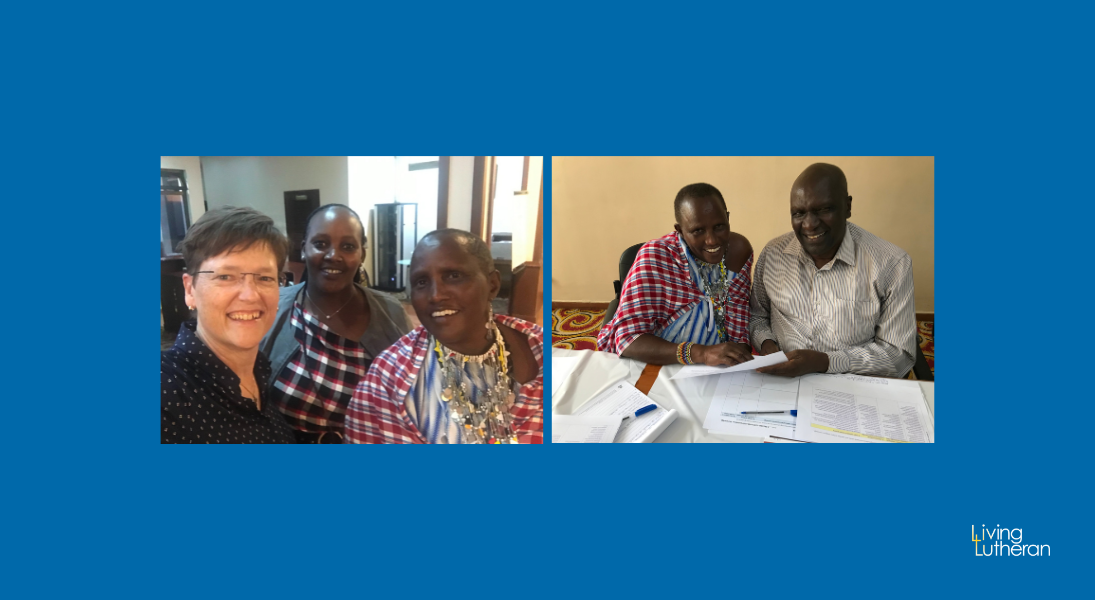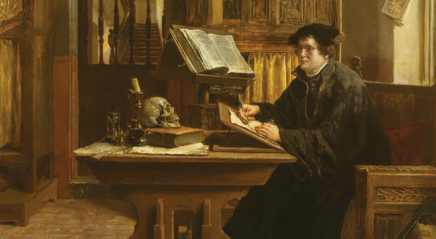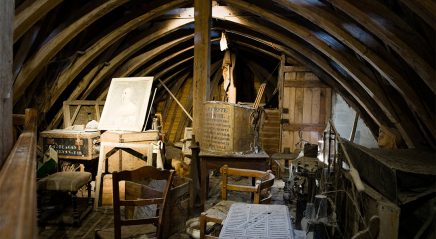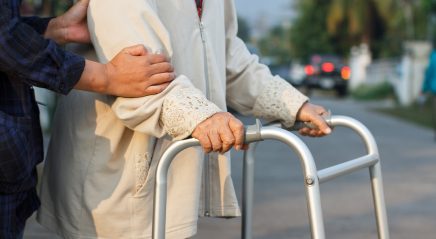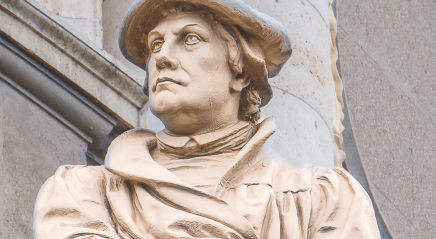Series editor’s note: Throughout 2024 “Deeper understandings” will feature teaching scholars of the ELCA reflecting on the many ways that Lutheran theology makes a difference for our daily lives. —Kristin Johnston Largen, president of Wartburg Theological Seminary, Dubuque, Iowa, on behalf of the ELCA’s seminaries
I can understand why some go numb when thinking about climate change. It is a challenging topic to face because it feels so insurmountable and overwhelming. Is it any surprise that the increasing, existential threat of global warming is also increasing “climate anxiety”? We have heard the news, we have seen the video coverage, and many of us despair.
Believe me, I know the feeling. I write this from Tanzania, where I spent three years as an ELCA volunteer teacher and returned many times to accompany church and student groups and to research my doctoral dissertation. Now I am back in Tanzania for two years on a postdoctoral fellowship, and, as before, I find myself surrounded by poverty and people affected by climate change. Recent figures show that 45% of the Tanzanian population lives on less than $2.15 per day. Thus, almost half the country lack the bandwidth or resources to implement adaptation strategies that will make them less vulnerable. Moreover, with 35% of the nation’s gross domestic product going to debt service, there are minimal resources on the national level to adequately mitigate the effects of climate change.
“Is there any hope?” you might ask. Even in this context—especially in this context—I want to offer a resounding “yes.”
“Is there any hope?” you might ask. I want to offer a resounding “yes.”
National and local governments have a responsibility to reduce their carbon footprints, as do all of us. Yet the church has a distinctive calling to respond with hope to the climate crisis. You might even say that hope is my job here in Tanzania. The European Commission has given me the opportunity to be a blessing to the Maasai people through developing best practices of creation care for a traditional Maasai context, to be disseminated through the vibrant educational systems of the Evangelical Lutheran Church in Tanzania (ELCT).
In my own thinking about this work, I have been influenced by a quote from Gus Speth, former chair of the Council on Environmental Quality: “I used to think that top environmental problems were biodiversity loss, ecosystem collapse and climate change. I thought that 30 years of good science could address these problems. I was wrong. The top environmental problems are selfishness, greed and apathy, and to deal with these we need a cultural and spiritual transformation. And we scientists don’t know how to do that.”
And that, friends, is right in the church’s wheelhouse. We know something about spiritual transformation, because we have lived it. We—the church—have experienced the transformative work of the Spirit, and because of this, we also know something about hope.
A gospel-centered approach
The project I facilitate leverages the educational and social structures of the ELCT, expanding the model I learned from ELCA missionary Mark Jacobson when the church responded to the HIV and AIDS crisis around the turn of the millennium. Just as the local church made a difference in the health of people with HIV and AIDS, it can make a difference in the health of the environment.
Working within the church and with the blessing of Godson Abel Mollel, bishop of the ELCT North Central Diocese, we are collaborating with Maasai writers and stakeholders to develop a series of lessons that integrate biblical creation care, traditional environmental knowledge and climate science in ways that are contextually appropriate to pastoralist contexts.
Yet the church has more to offer than simply amplifying relevant climate science (though that is important). What only the church can do—what the church is uniquely called to do—is to engage creation care from a gospel-centered approach.
As we are reconciled to Christ through faith, we are given the gift of eternal hope and peace. We live out this faith through our care for creation, honoring God’s first commission, to serve the land (in Genesis 2:15, the Hebrew ꜥāḇaḏ means both “work” and “serve”), and seeking social justice for our vulnerable siblings in poorer countries, who are more impacted by climate change.
What only the church can do is engage creation care from a gospel-centered approach.
In contrast to what we so often see in the media, which focuses on conflicts and crises that make for attention-grabbing headlines, the church embodies a clarion conviction of a deeper hope that holds us, no matter what. At its best the church confidently proclaims the perfect love that casts out fear, trusting that our God of hope will never abandon God’s good creation but will reconcile all things to Jesus Christ (Colossians 1:15-20). Living out this love through the power of the Spirit makes all the difference; many people working together in little ways can bring a big change.
This is also the message of ethologist and conservationist Jane Goodall, who did much of her work in Tanzania, and of the Green Belt Movement—led by Wangarĩ Maathai, the first Black African woman to win a Nobel Prize—in which mostly rural, Kenyan women planted 30 million trees.
In short, when it comes to climate change, the church matters. We see and experience worldwide communities of faith, big and small, that share hope-filled messaging and praxis, inspiring just the sort of transformation Speth envisioned. Each woman in the Green Belt Movement planted a tree to make a little difference; think what all our churches could do around the world in doing small things that, when combined, could make a big difference.
Get this column in your inbox: Visit livinglutheran.org/subscribe and sign up for the free email digest “LL Stories.” Receive the digest weekly, biweekly or monthly, and select the categories that interest you. (“Deeper understandings” is a “Voices of faith” column.)



